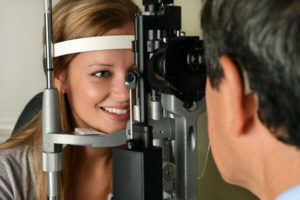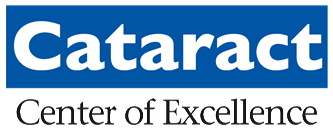What is LASIK?
LASIK eye surgery is a procedure that corrects certain vision problems, reducing or eliminating the need for eyeglasses or corrective lenses. LASIK actually stands for Laser in-situ keratomileusis, the technical term for the surgical procedure. LASIK eye surgery is the most common type of refractive surgery. Refractive surgery changes the shape of your cornea to correct your vision. This procedure can be quite effective and has very few side effects.
LASIK is a great option for many individuals considering laser vision correction for a variety of very personal and professional reasons. LASIK may not promise perfect vision, however; it is a highly successful procedure that can at the very least reduce a person’s dependence on glasses or contact lenses. Lifestyle benefits can be tremendous for active and social people. These benefits can enable people to more freely pursue their hobbies, sports activities, or career options.

Diagram of LASIK Procedure
LASIK is a non-invasive, refractive procedure using the technology of the excimer laser along with a well-known instrument called a microkeratome. (PLEASE NOTE some LASIK is performed using a femtosecond laser instead of a microkeratome, this is known as Bladeless LASIK.)
LASIK uses a beam of cool light to reshape the top layer (less than 10 percent) of the cornea so that images focus correctly on the retina. A computer, controlled by your LASIK eye surgeon, is used to precisely calculate the exact amount of cornea that needs to be removed for each person’s individual eyes. Numerous tests will be done on the eyes to achieve the measurements that will be treated with the laser.
What Happens in LASIK Surgery?
After LASIK surgery is complete, the corneal flap is put back in place. This flap will naturally adhere to the treated cornea, eliminating the need for sutures. Pressure from the eyelid and other factors will hold the flap in place as it heals, minimizing discomfort. The center of the cornea is now flattened, allowing light rays to be focused more precisely on the retina and images will be seen more sharply.
Most LASIK patients notice a dramatic improvement in their vision immediately after the procedure. However, maximum improvement will occur over the next three to four weeks. Both antibiotic drops and steroid drops will be used for several days following LASIK surgery to ensure proper healing. Artificial tears will also be used abundantly to help keep the cornea smooth and moist during the healing period.

Follow-Up After LASIK
The final outcome and speed of healing of the LASIK procedure are directly related to the care that is taken of the cornea after the procedure. It is very important to keep all postoperative appointments with your doctor.
Determining Your LASIK Candidacy!
Have you ever imagined what life could be like for you without the hassles of glasses and contact lenses? Do glasses bother you when playing sports such as basketball and skiing? Millions of people have already begun to love life without glasses after laser eye surgery and wake up every morning seeing the alarm clock with crystal clear vision.
Are you interested in knowing if you are a candidate for LASIK eye surgery? If so we have consultations that can set you on a path to visual freedom.

LASIK Candidacy
LASIK candidacy is determined by our ophthalmologists during the pre-operative eye examination which is performed by our practice. There are some preliminary established guidelines that must be met prior to the examination as follows:
In order to find out if you are a great candidate for this life-changing procedure, please contact us, or schedule a comprehensive consultation to discuss with our experienced doctors all your treatment options.
- The patient must be over the age of 18
- The patient must have the necessary amount of corneal thickness
- The patient must have had stable glasses or contact lens prescription
- The patient’s prescription must be within the treatable parameters
- The patient must discuss expectations with the staff or surgeon
- The patient must not have an extreme case of dry eye syndrome.
- The patient must have had a consultation regarding the benefits and possible risks of the surgery followed by an informed consent video
Laser Vision Correction, including LASIK eye surgery, has been growing in popularity since its FDA approval in the mid to late 1990s. Millions of people have selected this surgical procedure with the possibility of eliminating glasses and contact lenses from their lives and have achieved wonderful results. LASIK eye surgery provides several advantages over glasses or contacts because it corrects the visual problem as opposed to simply treating the symptoms.
Long-term and short-term clinical data suggest that an overwhelming amount of people who have chosen LASIK eye surgery have had positive results. The American Academy of Ophthalmology released a 10-year effectiveness study that concluded LASIK eye surgery was effective. Many celebrities and sports stars have even praised the value of LASIK eye surgery.
The Regional Eye Center has offices located in Kingsport, Tennessee that offer Laser Vision Correction including LASIK eye surgery and PRK. Click here to request an appointment.
Common Questions about LASIK
Q: What is LASIK?
A. LASIK is a procedure that improves vision by changing the shape of the cornea with a laser and is a very effective treatment for a wide range of vision problems. LASIK continues to grow in popularity and is the number one elective surgery in the country.
Q. Are there patient financing companies available that can help me afford the cost of LASIK?
A: We have selected CareCredit as our patient financing company. We feel they treat out eye care patients with the utmost respect and genuinely try to help solve any issues that may arise.
Q. Is LASIK painful?
A: Most patients experience NO pain but some experience a mild discomfort just after the procedure. Within 24 hours and solid rest, most LASIK patients feel no pain.
Q. Why do people have LASIK surgery?
A. Research has shown that there are four main reasons that people choose to have LASIK.
They are:
- Life simplification: No longer having to deal with glasses or contacts
- Independence: Freedom from dependence on glasses and/or contacts
- Performance: Ability to perform better in sports-related activities
- Ability to see 24/7 when it counts: Better vision for all occasions (e.g., at a play, evening out, playing golf)
Q. What results can a person hope to achieve?
A. LASIK has proven overwhelmingly successful in reducing dependence on glasses and contact lenses. Clinical studies show that most LASIK patients (with mild to moderate prescriptions) have the potential to achieve 20/20 vision or near 20/20 vision. Generally, this means they no longer need or have reduced their dependence on glasses or contacts to drive, play sports, watch movies and TV, or participate in careers requiring excellent vision.
Q. Who is a good candidate for LASIK?
A. LASIK can treat a very broad range of nearsightedness, farsightedness, and astigmatism. The best way to determine who is a good candidate is a thorough eye exam. Candidates must be 21 years of age or older, in good general health, and have good eye health with no diseases such as cataracts or glaucoma.
Q. How long will the LASIK procedure take?
A. The LASIK laser vision correction procedure usually takes less than 15 minutes in the operating room. The actual laser time is approximately 1 minute.
Q. Are there any risks associated with LASIK?
A. Some potential complications include conditions such as dryness, night glare, under or over-correction, and loss of best-corrected vision. The risks of surgery should be discussed fully with the doctor prior to the procedure. Additionally, proper post-operative care helps to identify and address any potential healing complications.












